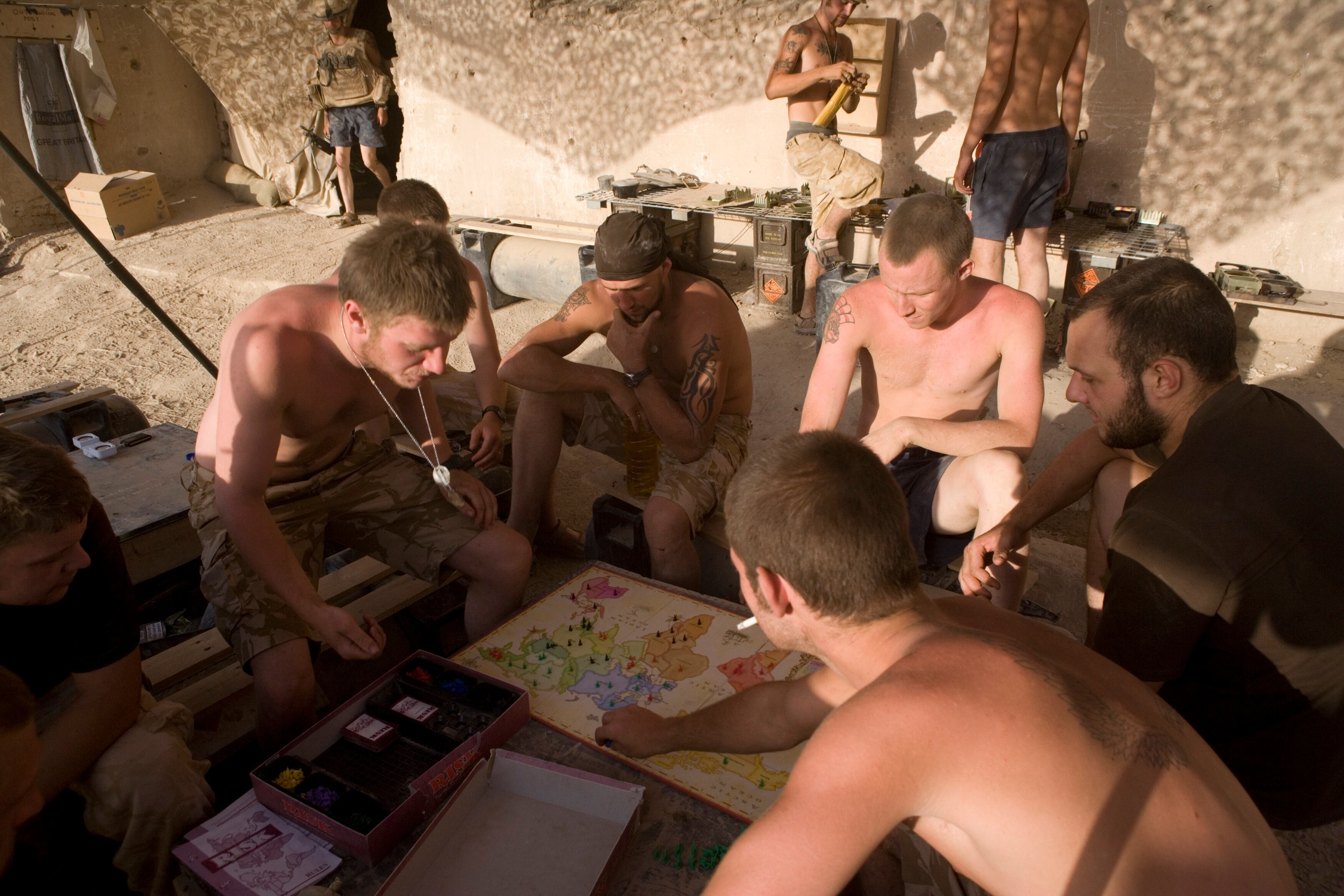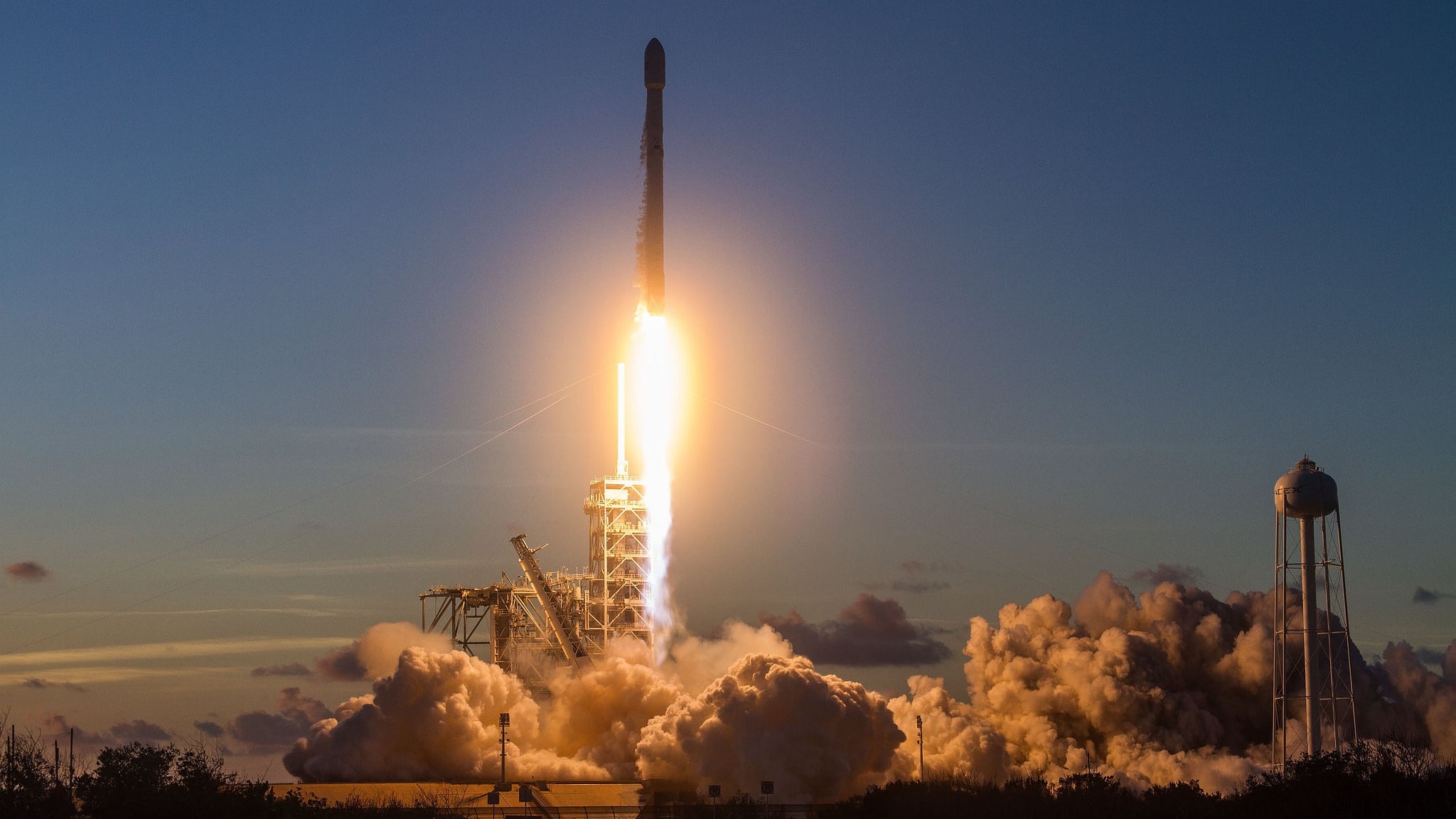LONDON – It’s not exactly boldly going where no man’s gone before, but Britain has appointed its first space commander to lead the country’s developing military space campaign.
Air Vice Marshal Harvey Smyth will take up a new position next month, directing Britain’s military space effort at the Ministry of Defence, a spokesman confirmed. Smyth is moving over from his role as the commander of the Royal Air Force’s No. 1 Group, which oversees operations related to fast jets as well as aerial intelligence, surveillance, target acquisition and reconnaissance.
Smyth, an ex-fighter pilot, steps into his new role as the British government moves to increase its presence in space to respond to the opportunities and intensifying threats to defense and security.
Creation of a new Space Command and setting up of a Cabinet-level national space council are among the initiatives being pursued by the British.
On the capabilities front, new Skynet 6 communications satellites, planned new ballistic missile defense radars, the possible creation of a UK Global Navigation Satellite System (GNSS), surveillance and reconnaissance assets, and space-launch systems are on the agenda.
An MoD search profile distributed to potential candidates for the new director space post last year said the role would touch on a wide number of issues, including high-level policy, industrial policy and a military space strategy.
“This is a new role which has been established to contribute to the development of UK policy towards space and to design and implement a defense space strategy, including by connecting activity across all parts of defense,” said the document.
RELATED

A military space strategy was completed more than a year ago but has never been published.
“The role requires substantial leadership within Defence, across government more widely, and with a wide range of international partners and stakeholders,” the document noted.
Based in the MoD’s main headquarters in central London, up to 25 civilians and military personnel involved in finance, policy and capabilities will support the new space directorate.
The defense space portfolio is expected to be worth at least £7 billion, or roughly $9 billion, over the next 10 years as related capabilities move closer to the top of Britain’s military agenda.
Space operations will continue to be conducted by the Royal Air Force.
The RAF’s 23 Squadron has been reformed as a space squadron responsible for day-to-day space command-and-control, including the flying of satellites.
Together with Smyth’s appointment and the space-operations assignment the RAF has for now gained effective control of the space effort here.
That’s probably to the detriment of the Strategic Command, which has been scrapping with the RAF for control of the space sector, said one industry executive who asked not to be named.
The Strategic Command, known as Joint Forces Command before it changed its name late last year, continues, though, to have a sizable interest in space as part of its revised tasking.
How all this fits into the pre-election pledge made by the new Conservative Government to create a space command for the first time is unclear.
The MoD is part of a wider government effort now working on what a Space Command might look like.
The Space Command idea is likely to mature as the government holds its first National Space Council meetings and during the upcoming strategic and defense security review due to be completed later this year.
The United States and France already have space commands and others, like Japan, are heading in a similar direction.
RELATED

The previous Conservative Government had already been leaning in the direction of an increased effort for defense and civil space development. That was prompted in part by the European Union's refusal to give the British access to the military-grade signals from its Galileo system once the UK exits the bloc.
One of Smyth’s jobs will be to act as the MoD lead for a comparable program undertaken nationally, or, more likely, with allies.
The makeup of the Cabinet-level National Space Council hasn’t been confirmed yet but it’s likely to include the defense secretary.
It’s hoped the council will help deliver a space strategy putting military and commercial space development at the heart of government policy.
Last July, then-Defence Secretary Penny Mordaunt outlined part of the MoD’s space program, committing £30 million, or $39 million, to fast-track the launch of a small satellite demonstrator.
The demonstrator is being run by a trans-Atlantic team of UK and U.S. defense personnel in a partnership known as Team Artemis.
The British have previously run a successful small satellite earth observation demonstrator program on a 100 kg spacecraft known as Carbonite-2, which is owned and operated by Airbus company's Surrey Satellites Technology Ltd.
The British have also seconded an RAF test pilot to the Virgin Orbit small-satellite launch program.
Andrew Chuter is the United Kingdom correspondent for Defense News.








